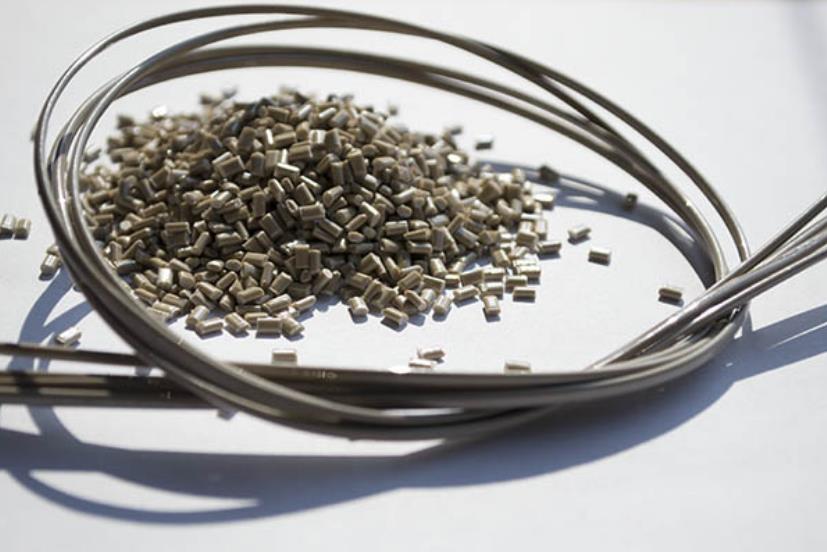Polyphenylene sulfide (PPS) is a semi-crystalline polymer with excellent properties, excellent high temperature stability, flame retardancy, chemical resistance and good mechanical and electrical properties. Carbon fiber (CF) is a reinforcing material with high specific strength, large specific modulus, good fatigue resistance, high temperature resistance, corrosion resistance, electrical conductivity, thermal conductivity and chemical inertness. The carbon fiber reinforced polyphenylene sulfide composite material combines the advantages of CF and PPS, and can obtain superior comprehensive performance unmatched by a single material, and becomes a new type of engineering material. It has broad application prospects in the defense and military departments such as aerospace, rocket, missile, aviation, and atomic energy.

(Photo: Carbon fiber reinforced PPS composite modified by NAPO)
However, PPS/CF composites become a typical brittle material because a large number of benzene rings on the main chain of PPS increase the rigidity of the polymer chain and make the impact toughness not high. The toughening study of the composite system was carried out by alloying toughening technique. Studies have shown that the brittleness of the PPS matrix itself and the weak interfacial adhesion of PPS/CF due to the inertness of the CF surface are the most important causes of brittleness of the composite. Toughening of the PPS matrix itself and strengthening the interfacial bonding are the research approach to improve composite systems resilience.
A variety of modified polymers were used to form alloys with PPS. It was found that with the addition of modified polymers, the impact strength of the composites could be improved, but the tensile strength and modulus decreased. The reason for this is analyzed, and it can be considered that this is because the strength of the modified polymers themselves is low, and their addition may cause a decrease in strength and modulus. PPS and polyamine-modified polymers are incompatible systems, which is the most important cause of unsatisfactory toughening effect.
Finally, the surface of the carbon fiber (CF) is chemically treated to carry a small amount of reactive groups, while the modified polymer grafted with maleic anhydride groups enhances its surface of compatibility with the matrix resin and the carbon fiber(CF), through the reactive processing, the strength, modulus, and impact toughness are simultaneously improved. After the alloy is compatibilized, the toughness of the matrix is improved, and the surface adhesion of the resin to the carbon fiber (CF) is improved. From the microscopic level, the main reason for the improvement of macro performance and the rationality of the toughening technology approach are further confirmed.